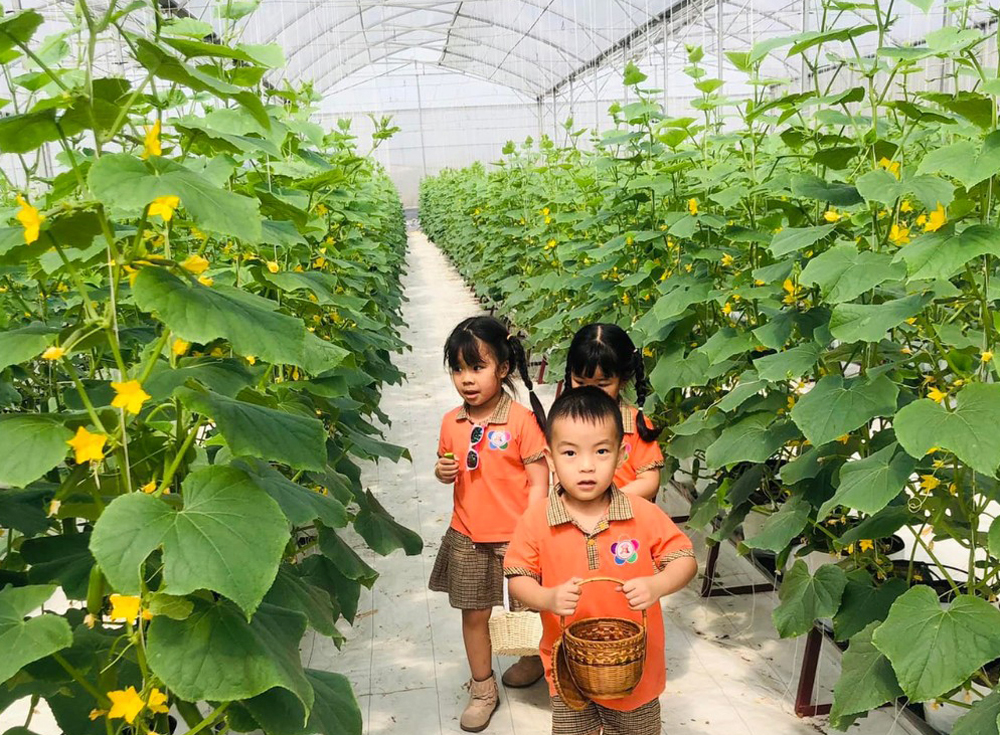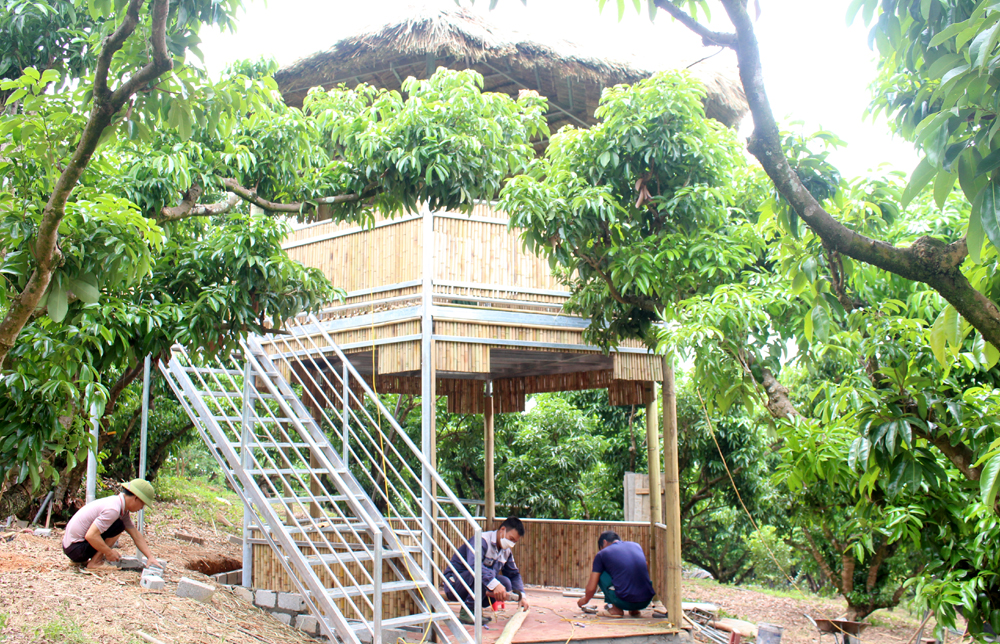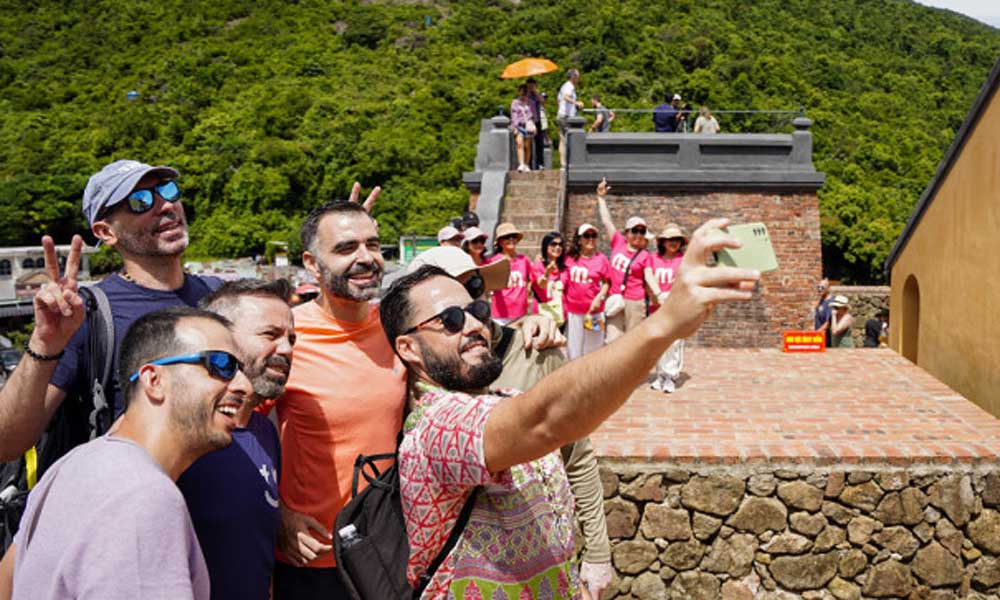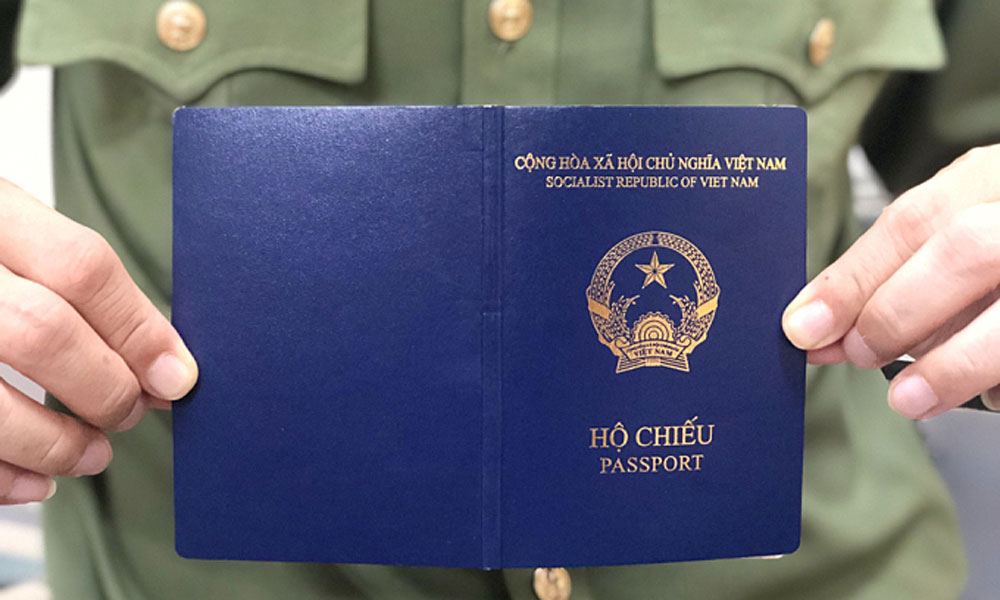Dual benefits from rural tourism
Joint effort of enterprise and farmer
After six years of operation, Yen Dung Clean Vegetable Cooperative (Yen Dung Cooperative) in Tien Dung commune (Yen Dung district) expanded the production scale up to 65 hectare from 13 hectares in the middle of this year, including 15 hectares of new and high value vegetable grown in net house and membrane house.
 |
|
Children experience at Yen Dung Clean Vegetable Cooperative. |
Joining with local effort to build new style rural, Yen Dung Cooperative also invested nearly 4 billion VND (161,000 USD) to construct experimental tourism site within the production area in Tien Dung commune which allow visitors to experience and practise to grow and take care of the crop, harvest and preliminary process the product.
For nearly one month of operation, the site has welcomed over 1,000 students from kindergarten and primary schools in the district and Bac Giang city. Teacher Trinh Thi Thuyen, owner of Quang Anh Kindergarten in Ngo Quyen ward (Bac Giang city) highly spoke of the site.
“Visiting Yen Dung Clean Vegetable Cooperative, the children have spacious and clean area to explore and study about crops and farming procedure. It really attracts them,” she said.
More than 600 farming cooperatives, 150 centralized vegetable and fruit growing areas and nearly 260 growing area codes, 750 recognized cultural and historical relic sites become huge advantage for localities to develop rural tourism.
Additionally, the province now has 180 products rated under One Commune One Product programme (OCOP), which not only divesify source for souvenir and tourism gifts but also preserve and promote special value of traditional culture as well as promote the image of Bac Giang land and people to the visitor.
Exploiting this strength, many companies and cooperatives have cooperated with local farmers to organize various community based tourism spots, several of which have been popular among visitors like Than Truong Cooperative in Phon Xuong town (Yen The district), Dong Dao Community Based Tourism Cooperative in Quy Son commune (Luc Ngan district) among others.
State supports community based tourism site
Though some rural tourism models have been established in the province under the style of homestay, farmstay and experimental farms, the number and scale are restricted. Besides, the tourism projects have been delayed with most of big investors in researching and planning steps.
 |
|
The orchard site is built to welcome visitors to Giap Son commune (Luc Ngan district). |
To assist the models, the provincial People’s Committee registered and suggested the Ministry of Agriculture and Rural Development supporting 11 rural tourism models in buidling new style rural in last September.
Developing rural tourism is one of the key solutions and tasks in National Target Programme on building new style rural in 2021 – 2025 period. In late 2021, the provincial People’s Committee issued Community based tourism development Project in Bac Giang province in 2022 – 2030 period.
Accordingly, in this period, the province will allocate expense to support 35 sites of community based tourism development, prioritize to pilot two community based tourism models for widespreading, including Dong Dau ecotourism site – Bau Lay lake and An Phu Cooperative (boat of river) in Bac Hoa village, Tan Son commune (Luc Ngan district).
These are two out ot 11 models selected and suggested by the province ti receive central assitance. Two sites have a lot of potential for community based tourism with signature features.
Director of the Agriculture and Rural Development Duong Thanh Tung said: “Developing rural tourism will bring dual benefits to the people that are to develop the advantage and potentials of agriculture, craft village, culture and eco environment and enhance the quality of spirital and material life for rural residents. Recently, the sector has collaborated with the Department of Culture, Sports and Tourism to consult the provincial People’s Committee to submit the provincial People’s Council to issue Resolution supporting tourism sites which are self invested by individuals so as to boost the switch of rural economic structure toward multi value integration and sustainable development”.
 Bắc giang
Bắc giang















Reader's comments (0)